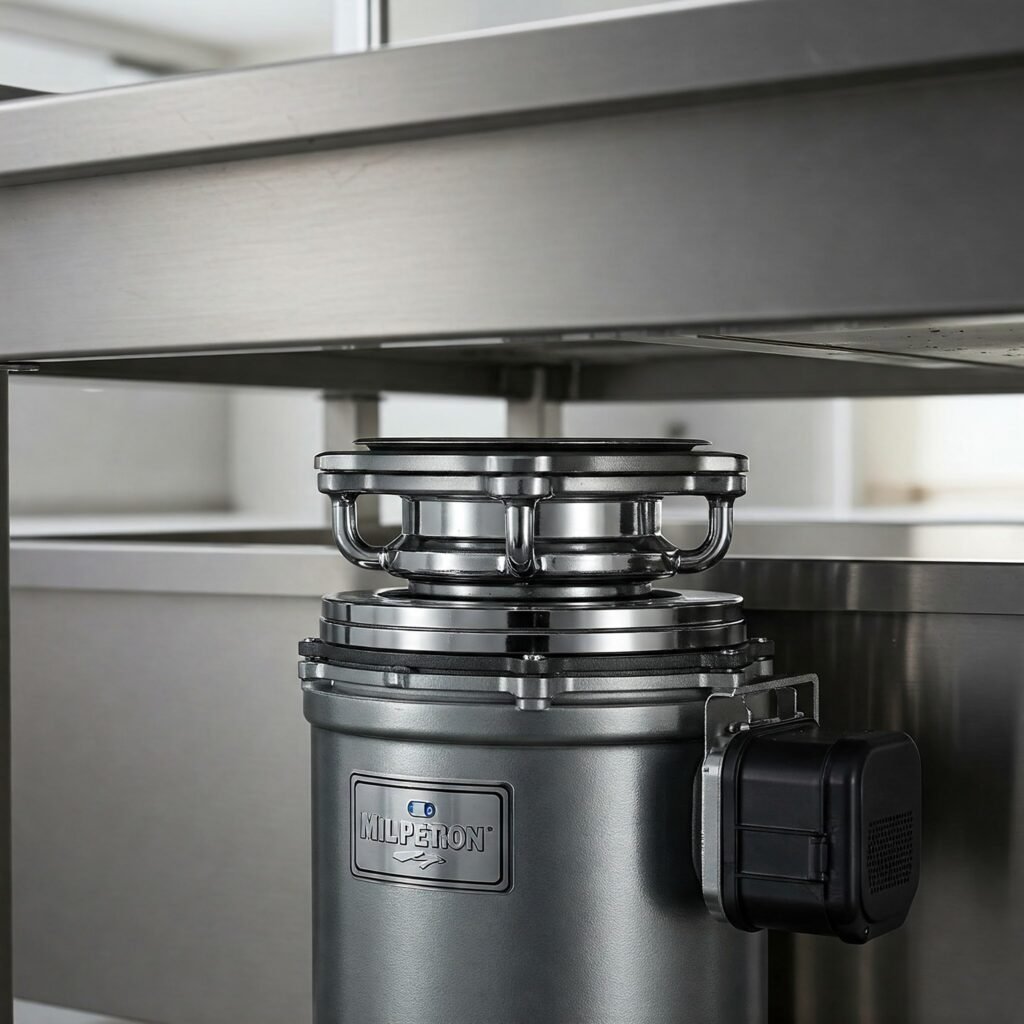Commercial garbage disposal is a critical yet often overlooked aspect of running a business. Whether you operate a restaurant, retail store, office complex, or industrial facility, managing waste efficiently ensures compliance, reduces costs, and supports sustainability goals. However, many businesses struggle with outdated practices, leading to environmental harm and regulatory fines. In this guide, we’ll explore actionable strategies to optimize your commercial garbage disposal process, from selecting the right services to adopting innovative waste reduction techniques.
ng elit. Ut elit tellus, luctus nec ullamcorper mattis, pulvinar dapibus leo.
What Is Commercial Garbage Disposal?
Commercial garbage disposal refers to the systematic collection, transportation, and processing of waste generated by businesses. Unlike residential waste, commercial waste often includes larger volumes, hazardous materials, and industry-specific debris like food scraps, packaging, or construction materials. Proper disposal requires specialized equipment, permits, and adherence to local regulations.
By partnering with professional waste management companies, businesses can streamline operations while minimizing their environmental footprint. However, not all disposal methods are created equal—choosing the right approach depends on your industry, waste type, and sustainability objectives.
Why Commercial Garbage Disposal Matters for Your Business
Ignoring proper waste management can lead to severe consequences. Fines for non-compliance with environmental laws, pest infestations, and reputational damage are just a few risks. On the flip side, effective commercial garbage disposal:
- Reduces operational costs through recycling and waste-to-energy programs.
- Enhances workplace safety by preventing hazardous material buildup.
- Supports sustainability goals, appealing to eco-conscious customers.
For example, restaurants can cut costs by composting food waste, while manufacturers might recycle metal scraps. The key is tailoring your strategy to your business needs.
Types of Commercial Waste Requiring Disposal
Not all commercial waste is the same. Common categories include:
- Organic Waste: Food scraps, landscaping debris, and biodegradable materials.
- Recyclables: Paper, plastic, glass, and metals.
- Hazardous Waste: Chemicals, batteries, and medical waste.
- Construction Debris: Concrete, wood, and drywall.
Each type demands specific disposal methods. For instance, hazardous waste requires licensed handlers, while recyclables need sorting facilities. Partnering with a disposal service that offers tailored solutions ensures compliance and efficiency.
Understanding Commercial Garbage Disposal Regulations
Local, state, and federal laws govern commercial garbage disposal. Key regulations include:
- EPA Guidelines: The Environmental Protection Agency mandates proper hazardous waste handling.
- Landfill Restrictions: Many states ban organic waste from landfills to reduce methane emissions.
- Recycling Laws: Cities like San Francisco require businesses to separate recyclables.
Non-compliance can result in fines up to $75,000 per violation. Regularly review regulations and work with certified providers to avoid penalties.
How to Choose a Commercial Garbage Disposal Service
Selecting the right waste management partner is crucial. Consider these factors:
- Service Scope: Does the provider handle your waste type (e.g., organic, hazardous)?
- Sustainability Practices: Look for companies offering recycling or composting programs.
- Cost Transparency: Avoid hidden fees with clear pricing models.
- Compliance Expertise: Ensure they understand local laws.
Ask for references and verify certifications like the EPA’s Responsible Recycling (R2) Standard.

Top 5 Benefits of Optimizing Commercial Garbage Disposal
- Cost Savings: Recycling and waste reduction lower disposal fees.
- Regulatory Compliance: Avoid fines with proper documentation.
- Environmental Impact: Reduce landfill contributions and carbon emissions.
- Brand Reputation: Eco-friendly practices attract customers and investors.
- Operational Efficiency: Streamlined processes save time and labor.
For instance, a hotel chain reduced waste costs by 30% after switching to compactors and recycling partnerships.
Common Challenges in Commercial Garbage Disposal
Even with the best plans, businesses face hurdles like:
- Contamination: Improperly sorted recyclables can render entire batches unusable.
- Space Limitations: Limited storage for dumpsters or compactors.
- Changing Regulations: Keeping up with evolving laws requires ongoing effort.
However, employee training and technology (e.g., smart bins that monitor waste levels) can mitigate these issues.
Innovative Solutions for Modern Commercial Garbage Disposal
Technology is transforming waste management. Examples include:
- AI-Powered Sorting Systems: Automatically separate recyclables from trash.
- Waste-to-Energy Plants: Convert non-recyclable waste into electricity.
- Composting Technologies: Accelerate organic waste breakdown for farms or biogas.
Adopting these solutions can future-proof your disposal strategy while cutting costs.
Case Study: Successful Commercial Garbage Disposal in Action
A Midwest grocery chain faced soaring waste costs and regulatory scrutiny. By partnering with a disposal firm, they implemented:
- Food Waste Composting: Diverted 12 tons monthly from landfills.
- Balers for Cardboard: Reduced recycling costs by 40%.
- Employee Training: Cut contamination rates by 75%.
Within a year, the chain saved $150,000 annually and achieved zero-waste certification.
The Future of Commercial Garbage Disposal
Trends shaping the industry include:
- Circular Economy Models: Reusing materials in production cycles.
- Plastic Reduction Laws: Bans on single-use plastics in restaurants and retail.
- Blockchain Tracking: Transparent waste audits for compliance.
Businesses that adapt early will gain a competitive edge while supporting global sustainability efforts.
Conclusion
Commercial garbage disposal isn’t just a logistical task—it’s a strategic opportunity. By optimizing waste management, businesses can cut costs, comply with regulations, and contribute to a healthier planet. Start by auditing your current practices, invest in employee training, and partner with a disposal service aligned with your goals. With the right approach, your business can turn waste into a win-win for productivity and the environment.
FAQs About Commercial Garbage Disposal
- What’s the average cost of commercial garbage disposal?
Costs vary by volume and waste type, ranging from - 200–
- 200–1,500 monthly.
- How often should dumpsters be emptied?
Most businesses require weekly pickups, but high-volume industries may need daily service. - Can I recycle electronic waste commercially?
Yes, but e-waste must be processed by certified recyclers to avoid toxins.
By addressing these questions, businesses can make informed decisions about their waste strategies.

Pingback: Alyson H. Belcourt Email Address: 10 Online Presence Tips